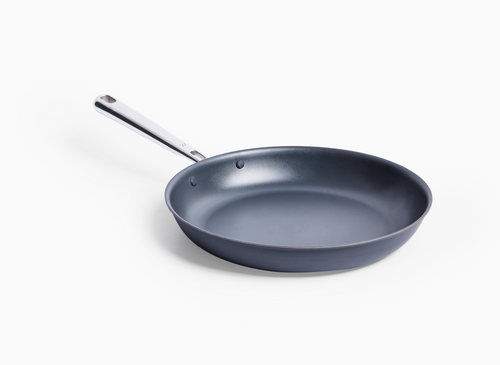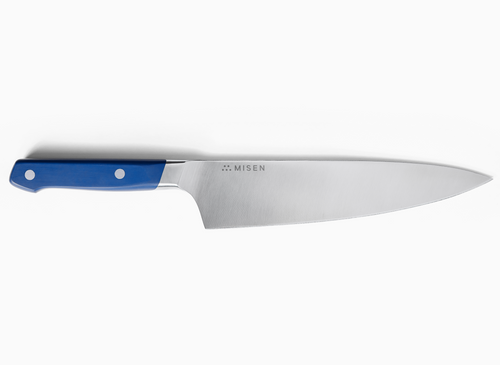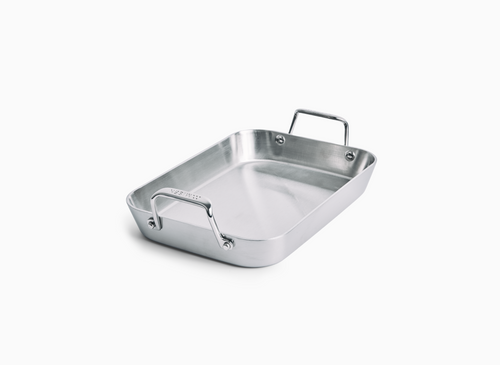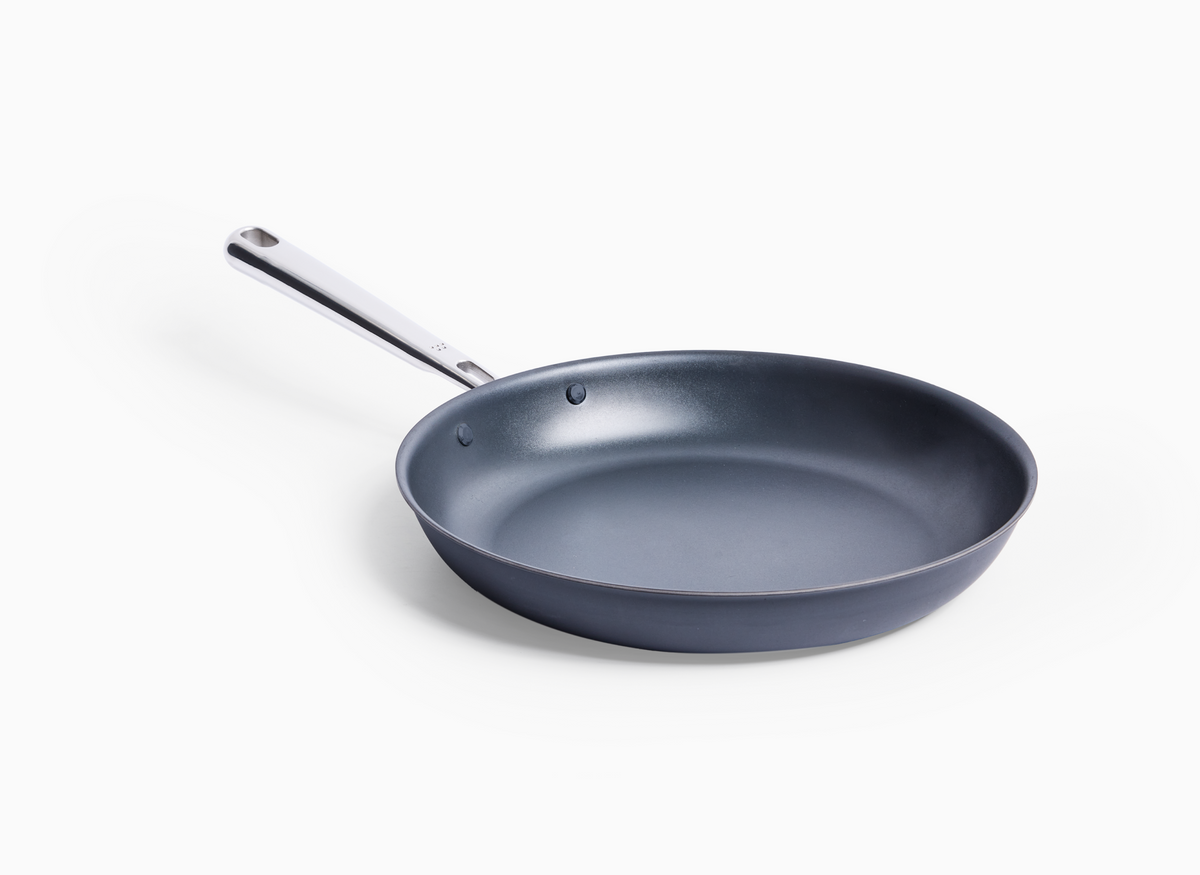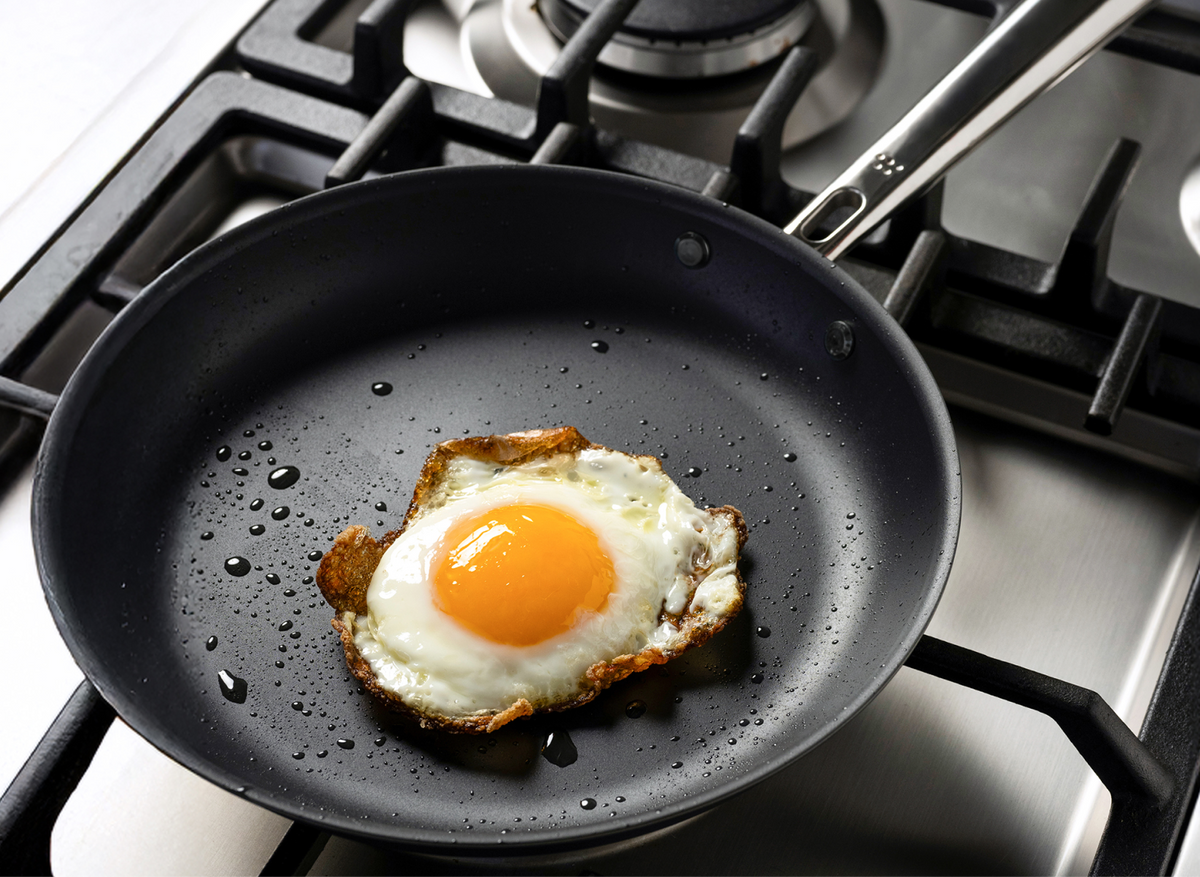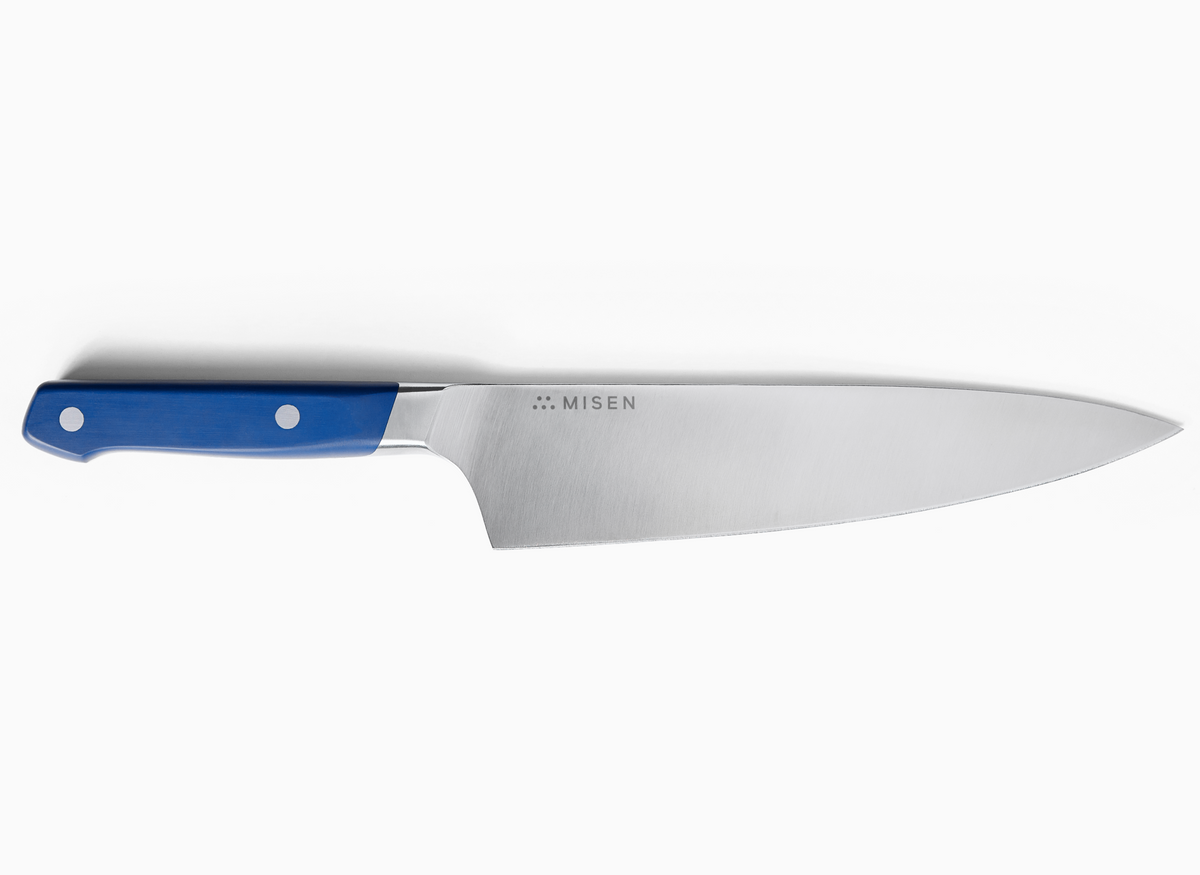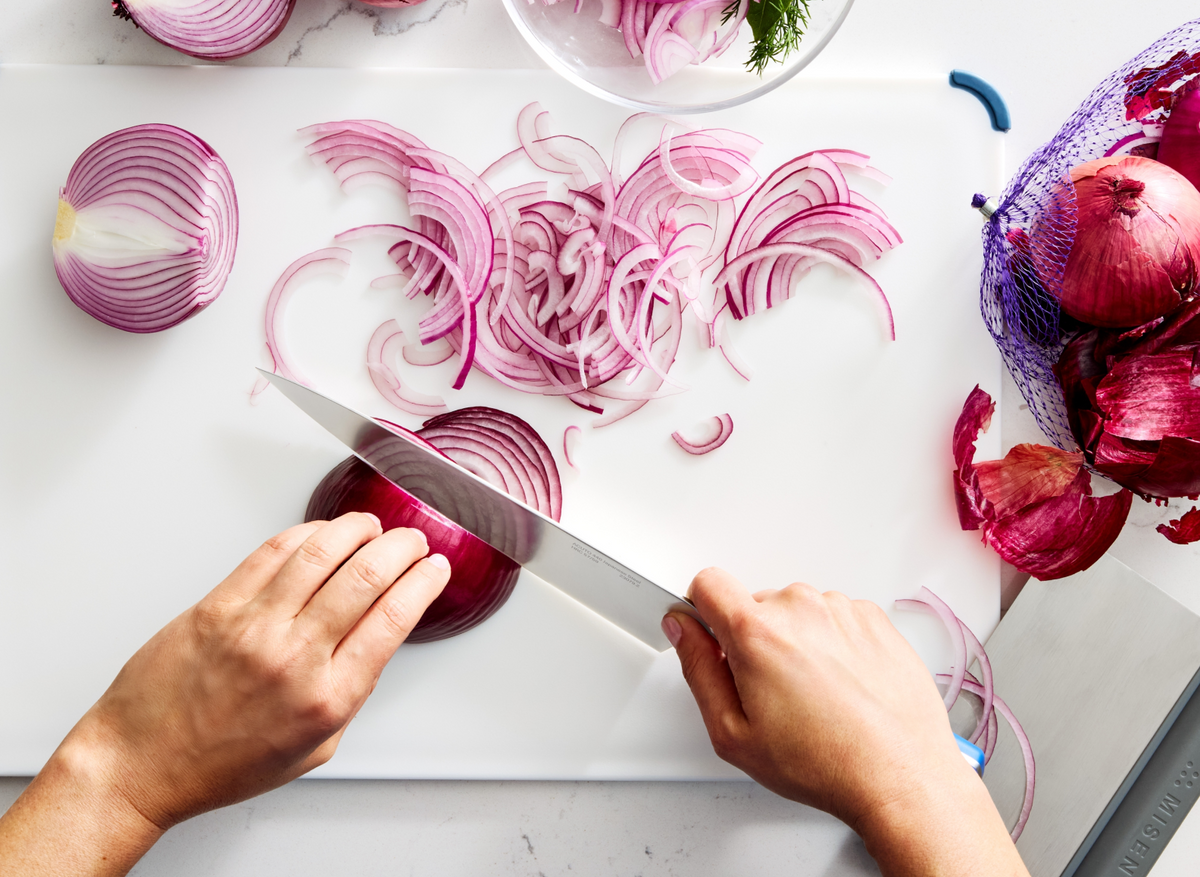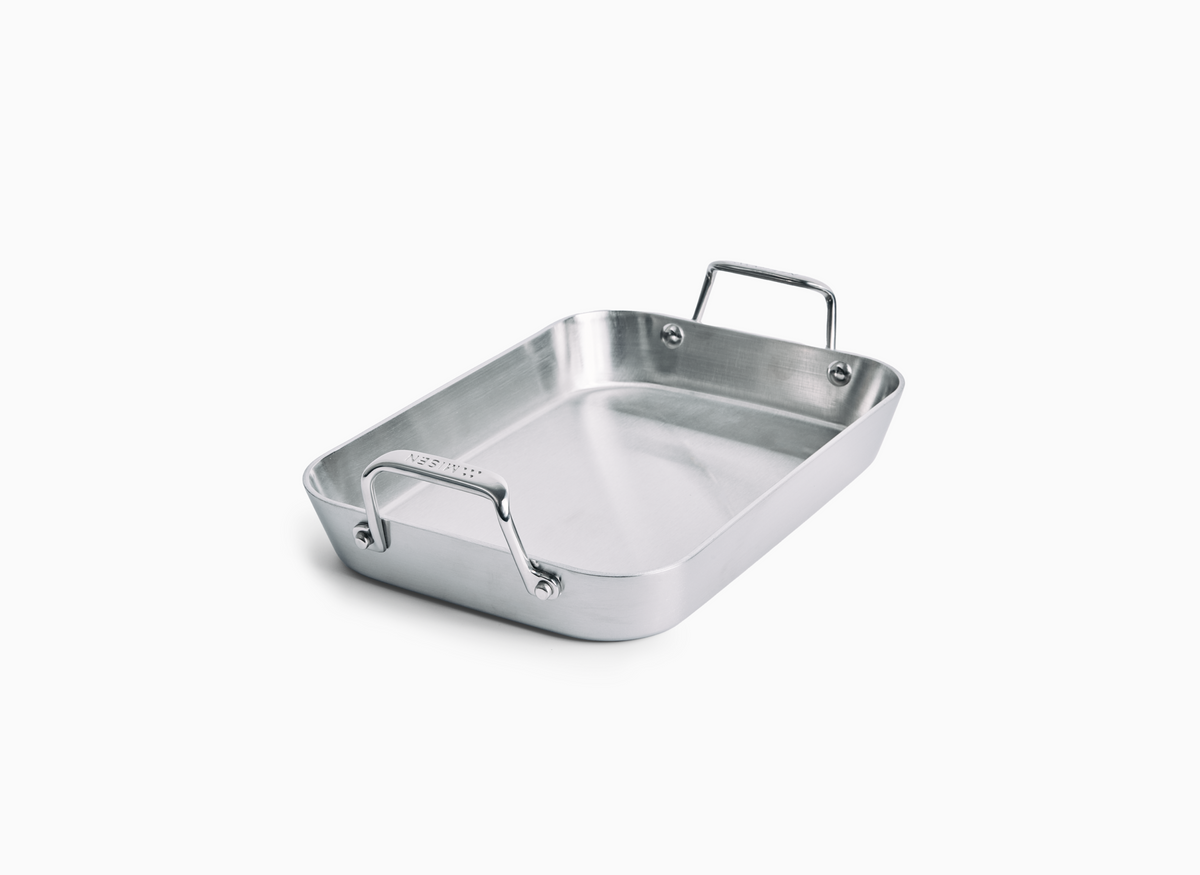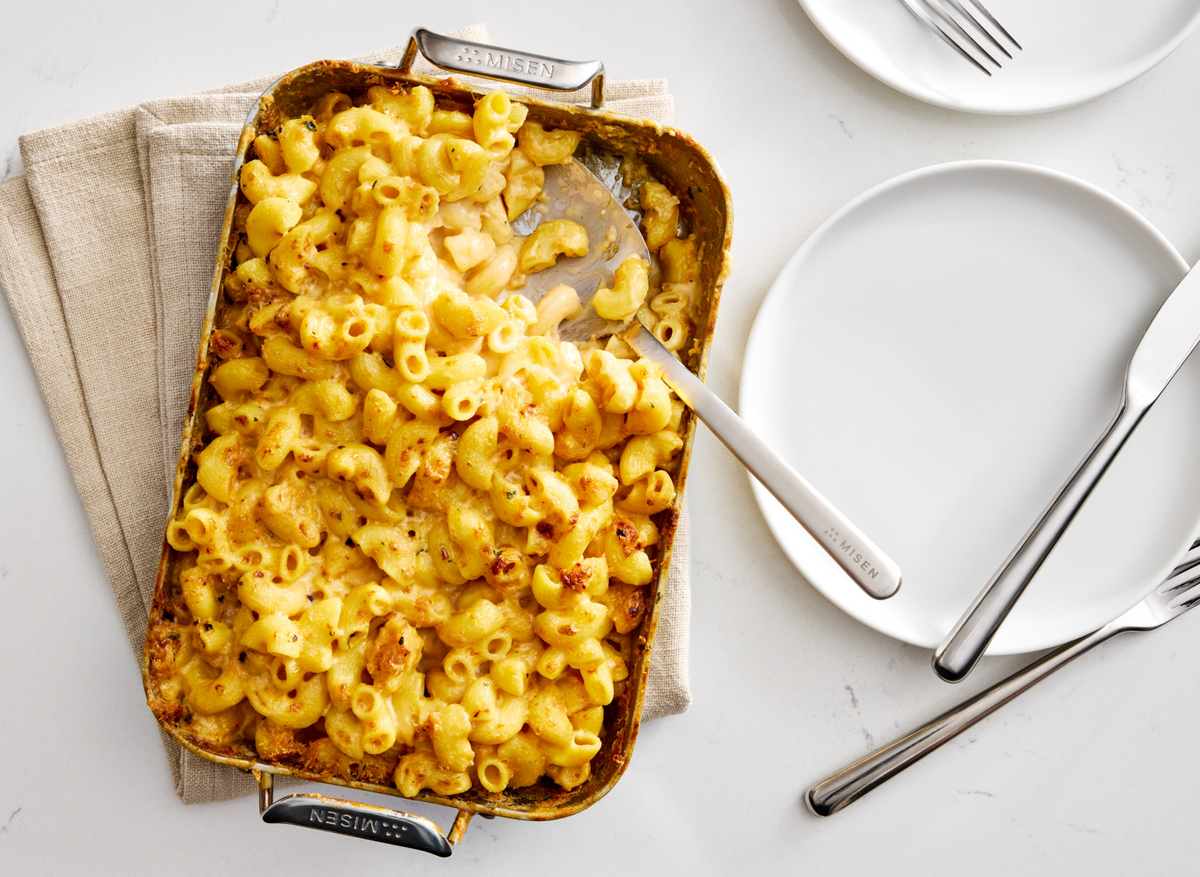Why Cookware Materials Matter
In cookware, materials matter a lot [link to heat article] when it comes to transferring heat from the stovetop to your food. But it doesn’t just matter which metals your pan is made from—how much metal you have is important as well.
The two key words you need to keep in mind when talking about cookware performance is retention and conduction.
The thicker a layer of metal is, the more heat it can retain. A thick cast-iron skillet stays hot long after the flame is turned off not just because cast iron retains heat well, but because the skillet is thick. More mass equals more retention.
In terms of conduction—that is, the ability to move heat from one place to another—things are a bit more complicated. For moving heat vertically from the stovetop to the food, as long as the metal is a good conductor in the first place, a little more thickness don’t make much difference. Where it does matter is in moving heat laterally.
A typical stove burner is smaller than a typical pan, so its heat is concentrated on the center of the pan. It’s then the job of the metal in that pan to conduct the heat laterally from the center out toward the edges. The better it conducts, the more evenly the pan heats up across its whole surface. This is a very important thing if you don’t want some of your pancakes to scorch while the others are half cooked.
A thicker layer of metal results in more heat conduction, and adding more metal also adds to heat retention of the pan at the same time (for heat to make its way from the center to the edge, more material has to heat up). But there’s no single metal that can do it all. Some metals, like stainless steel, are great at retaining heat but bad at conducting it, while others, like aluminum, have the opposite qualities.
This is why Misen’s cookware is made from 5 alternating layers of aluminum and stainless steel: this combination of metals gives you both excellent heat retention and conduction, and our pans’ extra mass and thickness means this dynamic duo of metals works even better to give you the ultimate pan.
